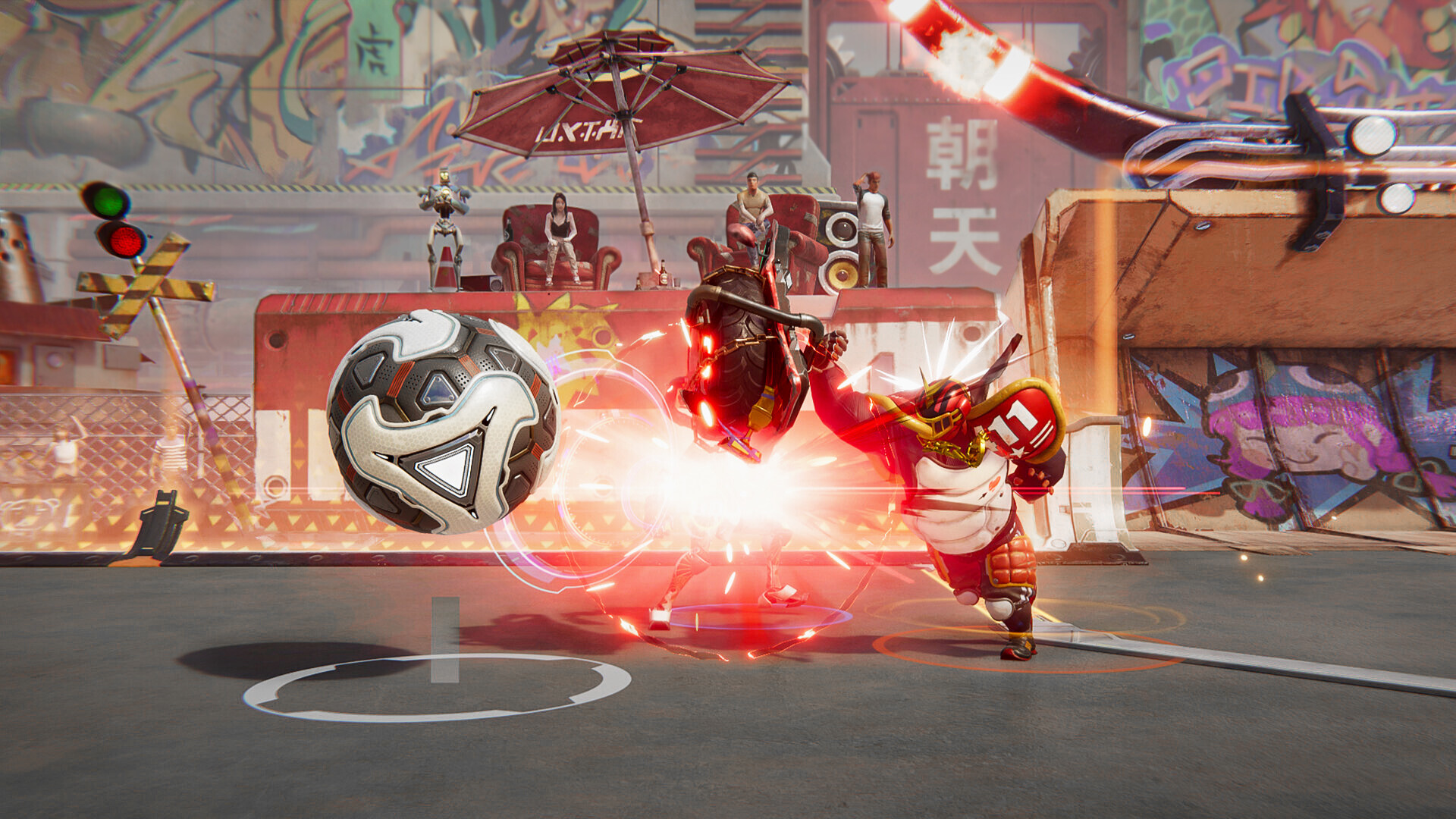"Over 80% of our audience is on Xbox," says Pathea about the launch of Superball after six years of development
At the end of October, the cooperative multiplayer game Superball by the Chinese indie studio Pathea Games was released. The studio is best known for their life simulation hit, My Time at Portia. The project took a long time to reach a full release and is still experiencing difficulties. We spoke with Yao Liu, one of the key developers of Superball, about the project’s journey and the hopes of its developers.
First, a little about Superball itself. It’s a session-based football game set in a cyberpunk environment. Two teams, each with three players, try to score goals against each other. The rules are complex due to multiple modes, and players, known here as champions, vary greatly in characteristics and skillsets. The closest game analogy would be Rocket League.
Alexander Semenov, App2Top/GWO: Tell us a bit about yourself and what you do at the company?
Yao Liu
Yao Liu, Pathea: My name is Yao Liu. I’m a game designer and lead programmer on Superball. I’ve been with the project since early development, overseeing gameplay systems, networking, and content design. My focus is on making the core experience fast, competitive, and fun while ensuring the technical foundation can support players worldwide.
Superball has a long and complicated development history. The project originally had a different name, had been in development since around 2017, and was launched several times on different platforms. Can you tell us in detail when exactly the game’s history began and how it all started?
Yao Liu: Superball began as a project called Artifact, originally conceived as a robot PVP game. By 2019, however, we discovered that the little kickball mini-game was unexpectedly compelling. We decided to elevate it to the core experience, and so Superball was born. It was our first time building a true online multiplayer game, a journey that felt equal parts thrilling and daunting.
In 2019, you showed an almost finished version of the game at E3. Then, in 2020, you launched a free version on the Epic Games Store and Steam. It attracted a solid audience, but it never made it to a full release. Why?
Yao Liu: The earlier launch showed promise, but the game wasn’t fully mature. We received strong feedback, especially around pacing, progression, and stability, then realized we needed deeper systems and stronger online support. We chose to pause instead of pushing out an incomplete product. It was a hard decision, but necessary.
What happened to the project after that?
Yao Liu: We went back into development. We redesigned matchmaking, improved game feel, added new modes, and rebuilt core tools. A major focus was stabilizing netcode and preparing for multi-platform cross-play. The game also needed a better long-term structure, so we reworked progression and monetization to support future content updates.
Why did you decide to re-release the game in 2025 under a different name?
Yao Liu: The scale and identity of the game changed significantly. It evolved into something broader, new modes, new characters, and a different long-term strategy. A new name signals a fresh start, communicates the new direction, and helps attract players who may never have tried the earlier version.
I would like to point out that the decision to change the name and start a new page on Steam is very unexpected, considering that Super Buckyball Tournament had an established community and quite a few reviews. Do you regret doing so?
Yao Liu: It was a difficult decision, but we don’t regret it. The old page carried historical baggage that no longer reflected the project. Starting fresh allowed us to reposition the game, rebuild momentum, and avoid confusion. We’re incredibly grateful to the original community, and we hope they’ll join us again.
How does the new version of the project differ from the original Super Buckyball Tournament?
Yao Liu:
- Vastly improved netcode & backend
- New UI, systems, and hero progression
- Rebalanced abilities & pacing
- New content pipeline
- Cross-platform support
- Better onboarding + matchmaking
- Almost every major system has been redesigned for long-term service.
Why did you decide to publish the project with the support of Logoi Games instead of continuing to operate the game independently?
Yao Liu: Pathea Games has been actively expanding into multiple game genres, and in addition to Superball, our internal teams are simultaneously developing and publishing several other projects. Under these circumstances, getting a partner support became a natural choice.
The project was launched as part of ID@Xbox x IGN Showcase. How much of a boost did this provide in terms of traffic?
Yao Liu: Yes. The showcase significantly increased awareness, especially among Xbox players who had never seen the game before. We saw a noticeable spike in store traffic, social interest, and new player onboarding immediately after the event.
According to SteamDB, the game reached a peak of 400 players online. What about other platforms? How do you assess the launch?
Yao Liu: Across platforms, the total concurrency was higher, actually more than 80% of player base is from Xbox platforms. Superball is a long-term project. We’ve already made multiple backend upgrades, and as content rolls out, we expect concurrency to grow steadily. We’ve also cooperated on adding Game Pass benefits, so there is a great insentive to join through Xbox platforms. Since we use cross-play that is also very beneficial for PC players to ensure that there are high volume of players at all time.
You’ve been working on the game for 8-9 years. The project is not showing significant online activity yet. What are your plans?
Yao Liu:
- Continuous server + matchmaking improvements
- Content updates (modes, heroes, cosmetics)
- Community-driven balancing
As a long-term service game, our priority is to keep improving the experience and grow the community step-by-step alongside our players.

